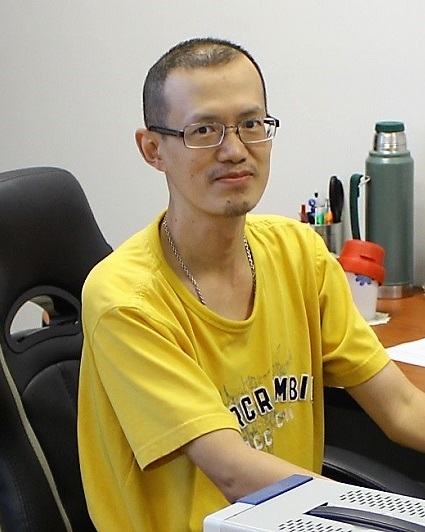Robotics NEO 2019
|
|
Chairs:
Nowadays robots are available in common activities as medical scanning devices, prosthesis, cars with some degree of autonomy, at home as cleaning robots and also as toys. To understand what a robot is we take the international federation of robotics definition: a robot is an actuated mechanism programmable in two or more axes with a degree of autonomy, moving within its environment, to perform intended tasks. That is, a robot can manipulate and transport objects but can also assist humans to rehabilitate different limbs and even to replace them, e.g. in surgery or as automated wheelchair. To accomplish these tasks several techniques have been developed to define their movements and to achieve the required degree of autonomy. In that direction optimization plays an important role to obtain reliable paths that allow robots fulfill their tasks in an efficient and safe way. |
Topics of interest include (but are not limited to):
- Mobile robotics: wheels, drones, mobile manipulators, aquatic robots
- Cooperative robots: manipulators, multivehicle systems in indoors and outdoors
- Service robots
- Robots for medical applications
- Robots in agricultural applications
- Techniques to design robots
- Control and planning algorithms
All submission will be peer-reviewed by a panel of international experts.
Contact: Dr.Chidentree Treesatayapun This email address is being protected from spambots. You need JavaScript enabled to view it.
Short Bios:
- Chidentree Treesatayapun (This email address is being protected from spambots. You need JavaScript enabled to view it.) received the Ph.D. in electrical engineering from Chiang-Mai University, Thailand, in 2004. He was a production engineer at SAGA Electronics (JRC-NJR) from 1998-2000 and was a head of electrical engineering program at North Chiang-Mai University, Thailand from 2001-2007. He is currently a senior researcher at Department of robotics and advanced manufacturing, Mexican Research Center and Advanced Technology, CINVESTAV-IPN, Saltillo campus, Mexico. His current research interests include automation and robotic system control and optimization, adaptive and learning algorithms and electric machine drives.
- Felipe A. Machorro Fernández ( This email address is being protected from spambots. You need JavaScript enabled to view it. ) received the Ph.D. in Robotics and advanced manufacturing from CINVESTAV-IPN, Campus Saltillo, in 2014. Is a fulltime professor in Tecnológico Nacional de México- Instituto Tecnológico de Saltillo assigned to the Electric-Electronic Department. His current research interests include: Dynamic modeling of mechatronics systems, robotics, bio robotics also low cost biomedical applications.
- Jonatán Peña Ramírez (This email address is being protected from spambots. You need JavaScript enabled to view it.) was born in Tulancingo de Bravo, Hidalgo, Mexico. He is an specialist in the field of analysis and control of nonlinear systems. In February 2013, Jonatán received his PhD degree in Mechanical Engineering from Eindhoven University of Technology, in The Netherlands, working on synchronization of coupled dynamical systems under the supervision of Prof. dr. Henk Nijmeijer. In April 2013, he was invited by the Japan Science and Technology Agency (JST) to join, as a postdoctoral researcher, to the project: “The Mathematical Theory for Modelling Complex Systems and Its Transdisciplinary Applications in Science and Technology” at the University of Tokyo, Japan. Currently, he is a postdoctoral researcher at CICESE (Center for Scientific Research and Higher Education at Ensenada) working in the project: “Synchronization of dynamical systems: analysis, synthesis, and applications”. He is member of the National System of Researchers (SNI-I). His research interests are in the areas of control and synchronization of dynamical systems, perturbation theory, mathematical modelling, network synchronization, and chaotic systems.


